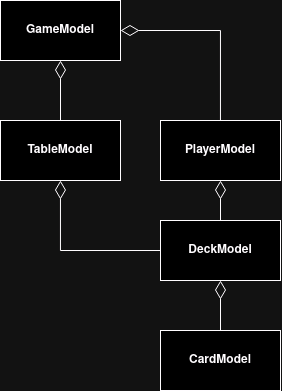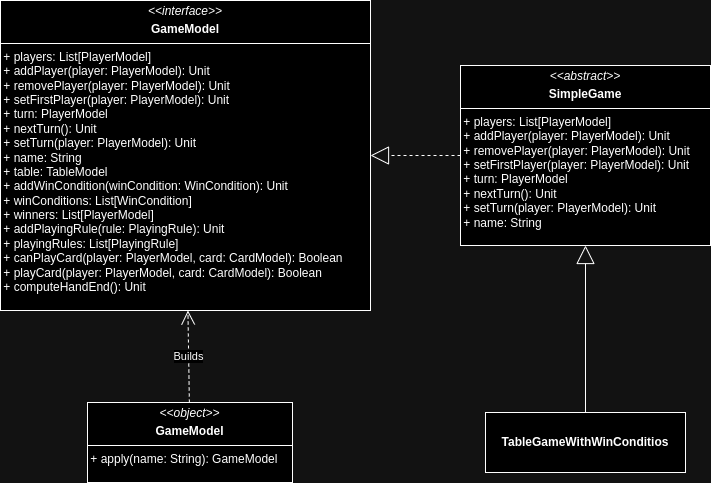PPS-23-CGE
Andrea Biagini
In the project implementation, I contributed working on GameModel and its related objects inside the Model part.
GameModel
The structure of a GameModel mainy adheres to the object oriented paradigm: it contains all the necessary information related to a card game. A more functional structure can be seen in the implementation of WinConditions, HandRules and PlayingRules.
The following diagram express relations between the elements composing GameModel.

Each element of the game model part is implemented hiding different implementations and trying to separate simplet concepts from the more advanced ones. Here is the UML class diagram of GameModel, which has a structure analogous to TableModel, PlayerModel, DeckModel, and CardModel.

WinCondition, HandRule and PlayingRule
The implementations of WinCondition, HandRule, and PlayingRule are based on the same idea of using lambdas: each of these names is a type alias for a lambda that takes various objects as arguments, which might be necessary to define the rules.
With WinCondition, a win condition for the game can be expressed based on the entire game model and the player for whom we want to check for a win. The lambda is structured as follows:
(GameModel, PlayerModel) => Boolean
and returns true if the specified player is the winner of the game, false otherwise.
With HandRule, a rule can be expressed to determine if a player wins a hand based on the cards on the table, the card that the specified player has played, the trump suit of the game, and the ordered list of ranks in the deck being used. The lambda is structured as follows:
(List[CardModel], CardModel, Option[Suit], List[Rank]) => Boolean
and returns true if the specified card is the winner of the current hand, false otherwise.
With PlayingRule, it’s possible to specify a rule that determines whether a player is allowed to play a certain card based on the current state of the table, the current player, and the card they intend to play. The lambda is structured as follows:
(TableModel, PlayerModel, CardModel) => Boolean
and returns true if the specified player is permitted to play the specified card, false otherwise.